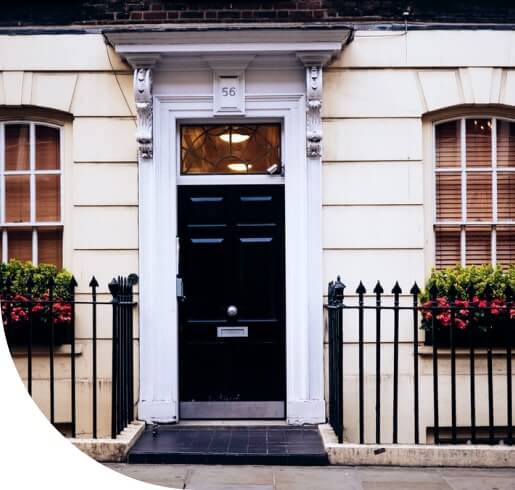
Find out Who Lives at Any Address with a Reverse Address Search!
A reverse address lookup is when you use an address to find out who the owner of that property is. This can be useful for finding out who your neighbors are or for finding contact information for someone you need to get in touch with.
There are a few different ways to do a reverse address lookup. One way is to use an online database, like Unmask.com. These databases will have records of who owns what property, and they may also have other information like phone numbers and email addresses.
You can also use public records to do a reverse address lookup. The best way to access public records is to go to your local county courthouse and ask for help from the clerk. They should be able to help you find the records you need.
Once you have the name of the owner of the property, you can use a people search engine to find their contact information.
Doing a reverse address lookup can be a helpful way to get in touch with someone or to find out more about your neighbors. With a little bit of research, you should be able to find what you're looking for.
How Does a Reverse Address Lookup Work?
Most people are familiar with the standard address lookup process. You enter a name and location into an online search engine, and the results show you a list of matching addresses. However, a reverse address lookup is the inverse of this process. Instead of searching for a name based on an address, you can search for an address based on a name.
Reverse address lookups can be useful in a variety of situations. For example, if you know someone's name but not their exact address, you can use a reverse address lookup to find it. Or if you're trying to track down the owner of an abandoned property, a reverse address lookup can help you identify them.
There are a few different ways to perform a reverse address lookup. The most common method is to use an online search engine, such as Google or Bing. Simply enter the name of the person you're looking for into the search bar, followed by the word "address." If the person has a publicly listed address, it should appear in the search results.
Another option is to use a dedicated reverse address lookup service like Unmask.com. These services maintain databases of addresses and names, and they allow you to search for an address using a name or vice versa.
Finally, you can also try contacting your local government offices. In many cases, they maintain records of who owns which property in your area. These records may not be available online, but you should be able to request them in person or by mail.
What Information Can I Find with A Reverse Address Lookup?
A reverse address lookup can tell you a lot about the person or business associated with a particular address. Here are some of the things you might be able to find out:
The owner's name and contact information
The property's details (e.g., square footage, number of bedrooms, etc.)
Neighborhood information (e.g., demographics, schools, crime rates, etc.)
An enhanced report that includes additional public records information (varies by provider)
Why Would Someone Use a Reverse Address Search?
When someone is searching for someone using a reverse address search, they are looking for specific information about that person. This could include their full name, date of birth, current address, phone number, email address, and other identifying information.
There are a few different reasons why someone might use a reverse address search. One reason might be to find a long-lost friend or relative. Another reason might be to try and locate someone who owes them money. And still another reason might be to find out more about a new neighbor or potential business partner.
How Unmask Can Help You
If you're looking for more information on a potential home or neighborhood, Unmask can help. A reverse address search can give you details like property value, square footage, who owns the home, and even how many people live there.
This process starts by inputting the address into Unmask. We then scour public records to find the most recent data available. This gives you an up-to-date snapshot of what's going on with that property.
You can also research potential homes before making an offer. This is especially important in today's market, where homes are selling fast, and you may not have time for a traditional home inspection. With Unmask, you can get an idea of any red flags that may be associated with the property.
Finally, if you're concerned about safety in your neighborhood, a reverse address search can help you find out who lives nearby. This way, you can introduce yourself to your neighbors and get a better sense of the community you live in.
Is Using a Reverse Address Search Legal?
If you're curious about someone's background, you may be tempted to use a reverse address search to find out more about them. But is this legal?
Reverse address searches are legal in the United States. The Fair Credit Reporting Act (FCRA) permits businesses to use consumer reports, which can include information from a reverse address search, as long as the information is used for a legitimate business purpose.
There are some limitations on how businesses can use consumer reports. For example, businesses can't use consumer reports for employment decisions unless the information in the report is job-related and the business has a legitimate need for the information. Additionally, businesses can't get consumer reports on consumers who have been deceased for more than two years.
So, if you're thinking about using a reverse address search to find out more about someone, go ahead. Just be sure to use the information you find for a legitimate purpose.
Browse by State
- Alabama
- Alaska
- Arizona
- Arkansas
- California
- Colorado
- Connecticut
- Delaware
- Florida
- Georgia
- Hawaii
- Idaho
- Illinois
- Indiana
- Iowa
- Kansas
- Kentucky
- Louisiana
- Maine
- Maryland
- Massachusetts
- Michigan
- Minnesota
- Mississippi
- Missouri
- Montana
- Nebraska
- Nevada
- New Hampshire
- New Jersey
- New Mexico
- New York
- North Carolina
- North Dakota
- Ohio
- Oklahoma
- Oregon
- Pennsylvania
- Rhode Island
- South Carolina
- South Dakota
- Tennessee
- Texas
- Utah
- Vermont
- Virginia
- Washington
- West Virginia
- Wisconsin
- Wyoming




